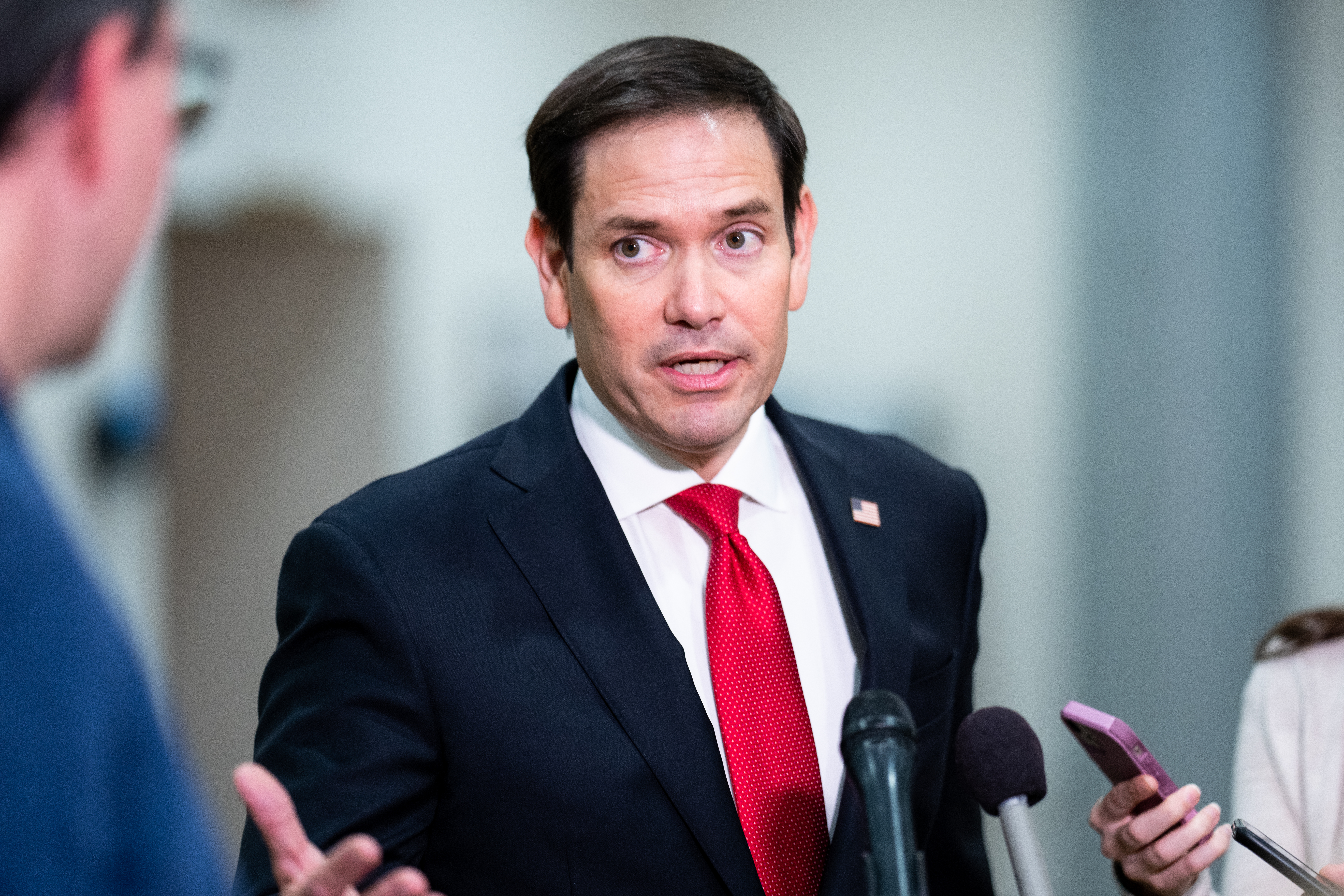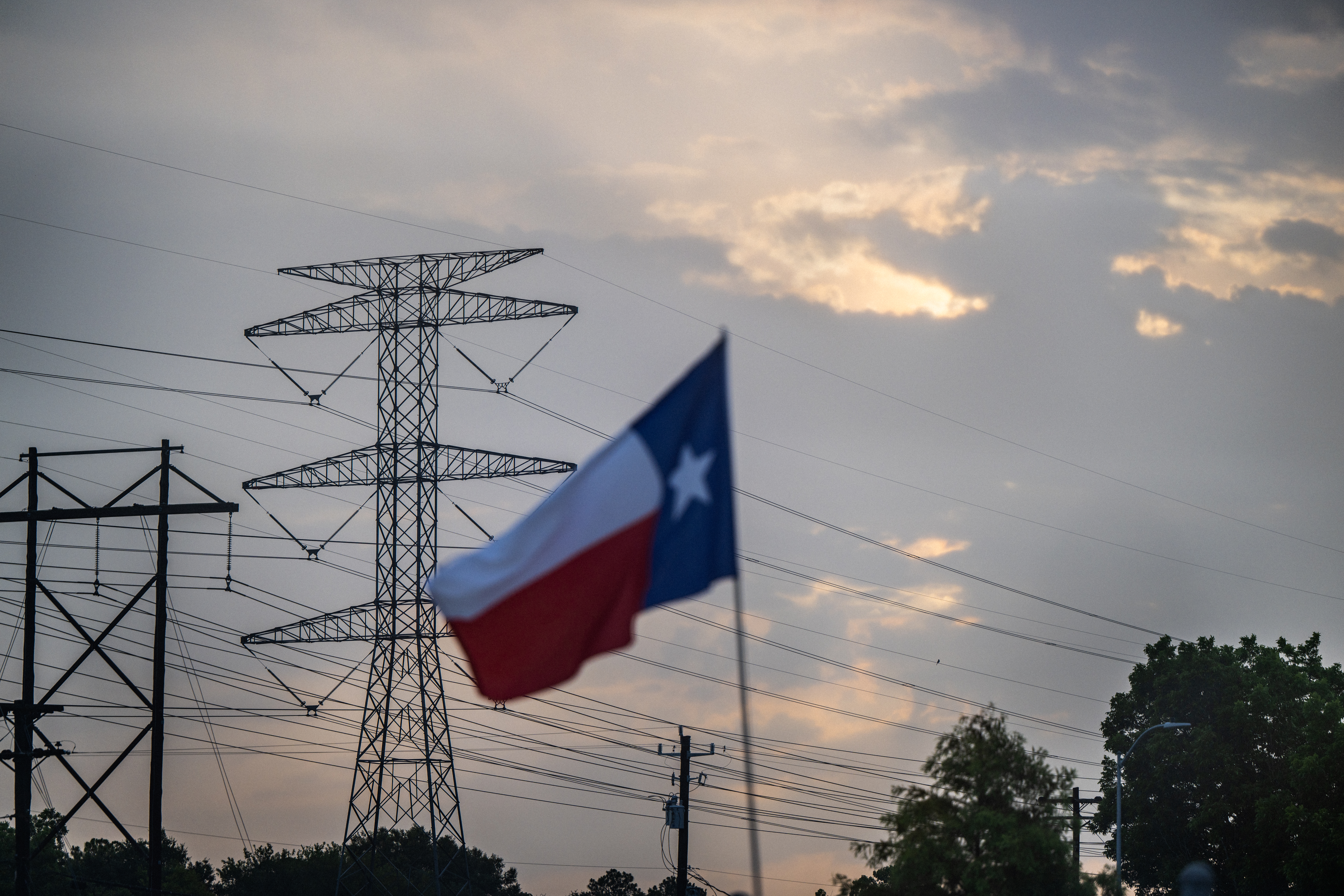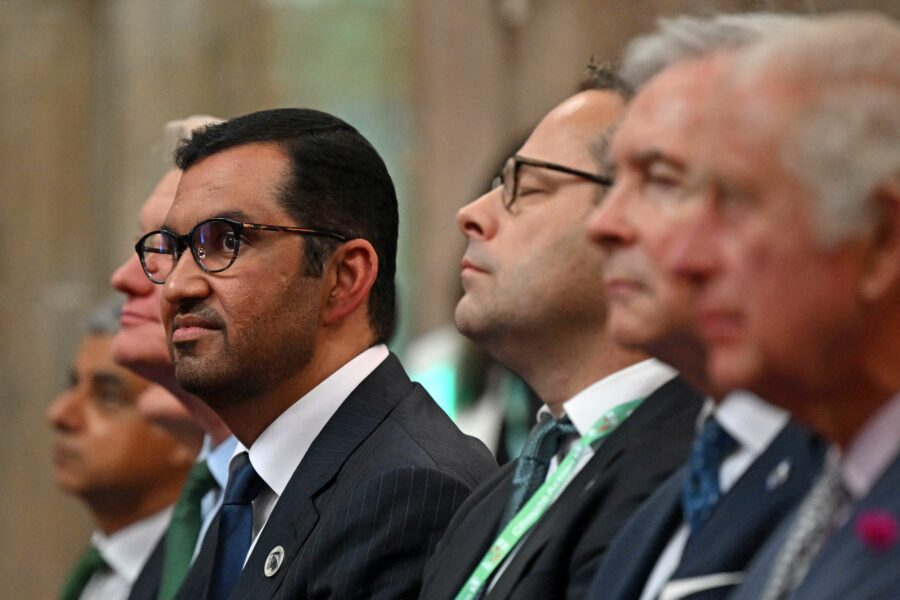With war raging in both Israel and Ukraine, this year’s military spending bills are widely viewed as among the most important and contentious items facing Capitol Hill.
Into the already pitched battle over the Fiscal 2024 budget, Sen. Marco Rubio (R-Fla.) has introduced an item designed to blow up a key item of President Biden’s climate agenda. He is sponsoring an amendment to the military construction and Veterans’ Affairs bill that would block federal agencies from tightening energy efficiency standards for new homes that they finance.
Although construction standards for low-income housing may seem far afield from construction funding for the Pentagon, a wide array of wish-list items often hitch a ride on such must-pass pieces of legislation. The riders then become subject for negotiation between the House and Senate. Or, as has been the case this year, they result in a standoff that nearly shuts down the federal government. The Republican-led House packed its version of the bill with cuts to clean energy programs, restrictions on reproductive health care and other riders that drew a Biden veto threat.
Now, Rubio, a member of the Senate Appropriations Committee, has proposed using the legislation to address a top agenda item of the home building industry. His amendment would put a hold on proposed upgraded efficiency standards for new homes and apartments subsidized by the Department of Housing and Urban Development and the Department of Agriculture’s rural housing loan program.
Rubio, who won reelection last year, was the top Senate recipient of campaign contributions from the home building industry in the 2022 election cycle, with at least $86,000 in donations, according to the Center for Responsive Politics.
Rubio’s office did not respond to a request for comment.
The standards upgrade he is seeking to block would require installation of higher-grade insulation and other efficiency measures in federally subsidized homes and apartments. HUD and USDA concluded earlier this year the new standards would provide more than $14,000 in energy savings over the life of a home, and more than $5,000 for a multi-family unit, because of reduced heating and cooling demand.
The National Association of Home Builders strongly opposes the upgrades, arguing that the agencies’ economic analysis is flawed, and in fact homeowners would not be able to recoup the increased cost of construction in energy savings in any reasonable time period. In comments filed with the agency this summer, the association said that the effect of the rule would be less availability of low-income housing.
“HUD and USDA have not given proper consideration to the challenges that even marginal construction cost increases present to builders who are trying to serve low-to-moderate income renters,” the association wrote.
But in a letter sent Wednesday to Senate leaders, a broad array of environmental, justice and business advocates urged rejection of the Rubio amendment. The cost of the requirements is only 2 percent of the average cost of a new home under the federal programs, paying for itself in less than 3 years on average, wrote the American Council for an Energy-Efficient Economy and other advocates of upgraded standards.
“Without the new energy standards, low-income households will unnecessarily endure decades of higher energy bills and homes that are less safe in the face of extreme heat and cold,” the advocates said.
There is little debate that energy efficiency is one of the cheapest approaches to cutting greenhouse gas emissions. But in a nation where building standards are set at the state and even local level, it has been difficult to enact nationwide policy to take a bite out of energy consumption by buildings, which generate more than a quarter of carbon emissions globally.
Setting standards for building construction that the federal government subsidizes is one of the few levers national policymakers have under current law. That’s why Congress, in its 2007 energy bill, required that HUD and USDA upgrade their energy efficiency standards regularly.
The last time the agencies upgraded their standards was during President Barack Obama’s administration.
The Biden administration is attempting to sidestep the budget bill morass for top priorities like aid to Ukraine and Israel, which the White House is expected to seek in a separate supplemental funding request.
Proposals like Rubio’s will be in the mix as Congress, without a House speaker and facing another government shutdown deadline in November, decides the fate of the military construction and Veterans Affairs bill, the separate Defense bill, and 10 other spending measures. The dozen federal appropriations bills typically end up in massive omnibus budget bills, passed under pressure, with little time to spare—a process that often ends with at least some riders being enacted into law, even measures that would have little chance of passage as stand-alone legislation.
In such an unsettled environment, the fate of Rubio’s amendment is uncertain, at best, but veteran Hill observers are loath to rule out passage, given the strength of special interests like the home builders.
More Top Climate News
Migrant Workers Face Dangerous Heat Ahead of COP28 Climate Talks in UAE: A human rights group is sounding alarm bells, saying migrant workers in Dubai have been working in dangerously hot temperatures to get conference facilities ready for world leaders attending this year’s international COP28 climate talks, Nina Lakhani reports for the Guardian. According to FairSquare, the migrants toiled on two days of extreme heat and humidity last month, even working through UAE’s “midday ban,” which prohibits outdoor work during the hottest hours over the summer months.
Biden Administration Announces $3.5 Billion for Grid Resilience Measures: The Biden administration on Wednesday announced it will put $3.5 billion toward electrical grid resilience projects, Zack Budryk reports for The Hill. It’s the nation’s largest ever single federal investment in the electrical grid and comes as energy experts warn that a lack of power lines is impeding the global clean energy transition. Biden officials said the funds, provided by the Bipartisan Infrastructure Law, will cover 58 projects across 44 states and will allow more than 35 gigawatts of new renewable energy to be brought online.
Expect an El Niño Winter With a Climate Change Wild Card, NOAA Says: The National Oceanic and Atmospheric Administration released its winter outlook this week, saying that the combination of a strong El Niño in the tropical Pacific Ocean and record high global ocean temperatures are likely to shape the upcoming winter season across the U.S., Andrew Freedman reports for Axios. That means that the Lower 48 states will have higher than average odds for an unusually mild winter. But forecasters say it’s still uncertain how that’ll translate to precipitation, and that there’s “still hope for snow-lovers.”
Today’s Indicator
8.1%
That’s the percentage of Atlantic tropical cyclones over the last 20 years that intensified from a Category 1 storm to a major hurricane in just 24 hours, up from 3.2% during the prior two decades, a new study found. That means hurricanes are now more than twice as likely as before to rapidly intensify.

















